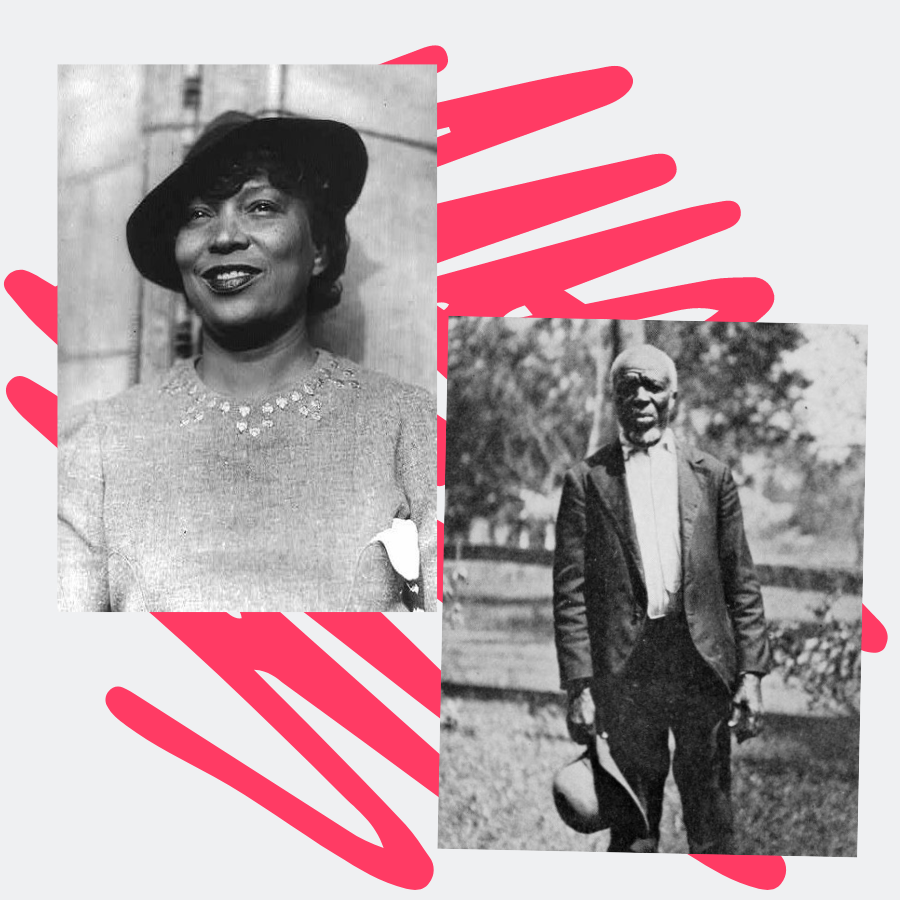This post may include affiliate links, which means we make a small commission on any sales. This commission helps Feminist Book Club pay our contributors, so thanks for supporting small, independent media!
Zora Neale Hurston had been dead for 70 years by the time Barracoon: The Story of the Last “Black Cargo” reached the masses. The book was published in 2018, and its significance cannot be understated. Not only is the subject matter gripping but how the book finally came to print — and why it took decades for that to happen — is a story in itself.
Barracoon is about the life of Oluale Kossola, whom Hurston interviewed in Alabama in 1927. Kossola is believed to have been the last living survivor of the slave trade. He was among 120 people captured in the African country of Benin, sold into slavery, and put onto the Clotilda, the last slave ship to travel to the continental United States. Kossola, who arrived in Alabama in 1860, had invaluable firsthand knowledge of traveling the Middle Passage as an enslaved person.
Hurston was not the first person to interview Kossola (also known as Cudjoe Lewis), as her peers did years earlier. Nor was it the first time his experiences were put into writing. However, Barracoon remained unpublished for decades because Hurston apparently refused to allow (presumably) white publishers to water down Kossola’s words. Something she had been derided – and applauded – for throughout her professional career(s).
An anthropologist, Hurston struggled for years to find a publisher who would agree to publish Kossola’s quotes in his dialect. The book that was published in 2018 is so significant because it does just that.
See, Kossola was never voiceless, and Hurston ensured that his words and culture weren’t further stolen from him in the name of palpability. Decades later, African American and Africana Studies scholar Deborah G. Plant edited the book in a manner that recognized this and respected Hurston’s wishes. Before being an interviewee or a subject, Kossola was a person who wanted his story told. It was apparent that he wanted his story told as he yearned for someone to go back to TK and tell his people that he’s in America and he hasn’t seen his
Though it’s been nearly a century since Hurston interviewed Kossola, the care and sensitivity she took with him are ever-present. One of the most gripping parts of the book is when Hurston addresses Kossola by his birth name.
He says through tears, “Oh Lor’, I know it you call my name. Nobody don’t callee me my name from cross de water but you. You always callee me Kossula, jus’ lak I in de Affica soil!
“Those who love us never leave us alone with our grief. At the moment they show us our wound, they reveal they have the medicine. Barracoon: The Story of the Last “Black Cargo” is a perfect example of this.”
Zora Neale Hurston
Barracoon TK is especially needed as some states actively fight to remove African-American history from their schools’ curricula.
Barracoon It’s also a testament that there’s still so much work to do.


